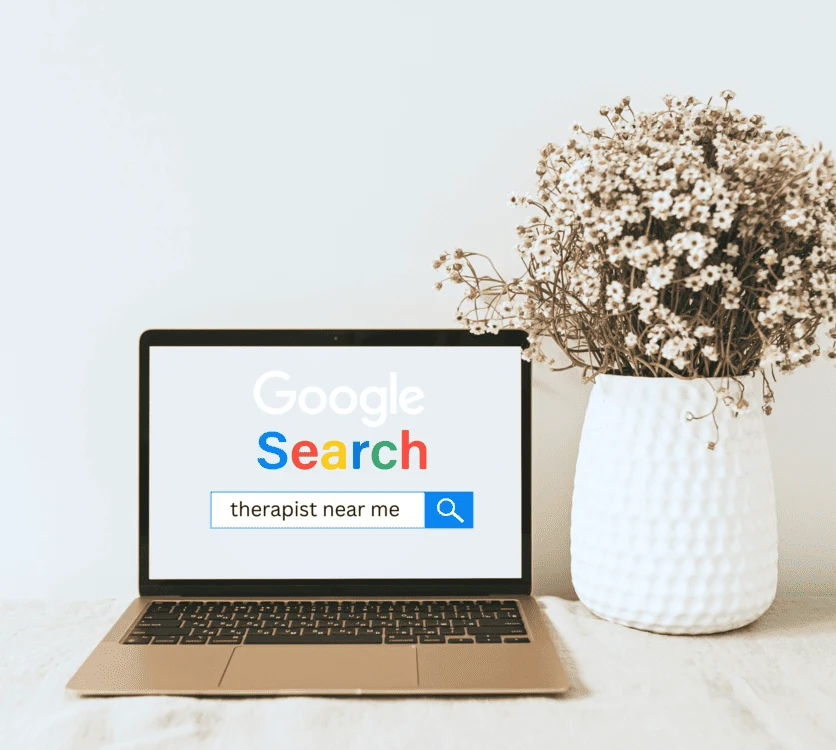Finding a Therapist Is More Than Just Typing “Therapist Near Me” in Google

When you decide that you’re ready to start therapy, you may wonder “how am I supposed to find a therapist?”. It can feel overwhelming, especially when you go to Google and search “therapist near me”. There are so many results and it can feel impossible to know who to pick.
Trying to decipher profiles or directories is tiring and sometimes leads to not even wanting to go forward with scheduling with anyone.
Here’s what really matters when you’re looking for a therapist:
1. Responsive and Timely
Let’s say you send an email or contact form to a therapist and they don’t respond to you until a week later. While therapists can be busy; if they are truly available to take clients, they would be attentive to inquiries. The lack of urgency can show you how this therapist may not have enough time or are disorganized. This would mean that they might not make you feel prioritized and important, two things that you want to experience in your therapy journey!
2. Look Beyond the Labels
Many therapists will have extra letters behind their name or list off certifications. While these are a good way to see their credentials; it doesn’t always help you understand how they conduct therapy. If you’re looking on a therapist’s website or a profile, they will usually talk about their style of counseling. If it’s unclear, or you have questions; take advantage of most therapists 15 minute free consultation to get more information.
3. Think About Identity and Lived Experience
For many people, finding a therapist who understands their cultural background, gender identity, sexuality, or lived experiences is incredibly important. Feeling seen and understood makes a huge difference.
It’s okay to seek a therapist who reflects or respects your identity. That’s not being picky—it’s being intentional about your healing space.
If this is an important factor for you, if you see a therapist who doesn’t mention inclusivity or anything regarding it, don’t see them. They most likely do not value this or have very strong personal beliefs that may get in the way of providing you with the care you deserve.
Some directories include therapists who you know will be able to provide a safe space for you. These ensure that the therapists included have the qualities and values important to the specific community.
Check out a few of these directories!
✦ Neurodivergent Therapists Directory
✦ Pink Therapy LGBTQIA+ Therapists
✦ Clinicians of Color and other Minoritized Identities
4. Logistics Matter Too
Making sure a therapist has the practical necessities, is also important.
Do they accept your insurance?
Do they offer telehealth?
What are their hours and cancellation policies?
Is their location (if in-person) accessible?
These factors affect how sustainable therapy will be for you. If you don’t see the answers to these questions listed clearly on their profile or website, ask!
5. It’s Okay to Switch
This one’s big: just because you start with a therapist doesn’t mean you’re stuck forever. If after a few sessions, something doesn’t feel right—trust yourself. Therapy should feel challenging in a growth way, not a this-feels-wrong way.
You’re allowed to stop seeing them. A good therapist will be understanding, and might even offer you recommendations!
Final Thoughts
Typing “therapist near me” is just the first step on the path to healing. The real journey is about finding someone who makes you feel safe, respected, and heard. Someone who honors your story—and helps you write the next chapter.
So take your time. Ask questions. Trust your gut.
You’re not just looking for a therapist. You’re looking for your therapist.